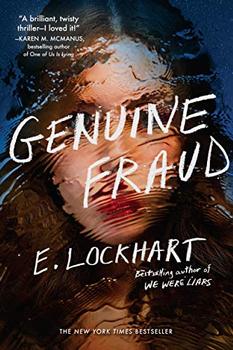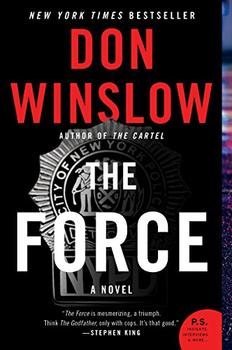Summary | Excerpt | Reviews | Beyond the book | Read-Alikes | Genres & Themes | Author Bio

A Lourdes Robles Novel, Book 1
by Peter BlaunerMore than a decade after winning the 1992 Best First Novel Edgar for Slow Motion Riot, Peter Blauner has returned from writing scripts for television to spin another noir crime fiction steeped in moral relativism and driven by a flawed, but empathetic, protagonist.
Nathaniel Dresden – called Natty Dread when carrying an M-4 carbine during his Iraq tours as a young intelligence officer – is home in Brooklyn because his father, David, has been shot down on the streets. David Dresden was a headline grabbing attorney whose passion was defending those caught up by the system, guilty or innocent. David was in the middle of suing the FBI for multi-millions because of the rendition of a Muslim postal clerk to a foreign prison where he was tortured.
Noir is generally driven by atmosphere and character, and Blauner cuts and shapes them both diamond-hard and crystal-clear. First, there's New York City, both Manhattan and Brooklyn, where money and poverty and gentrification sandpaper one another; a place filled with street crime and dedicated public servants, corruption and violence. There's also Natty Dread, torqued down to near implosion by war-earned post-traumatic stress disorder. His anger, frustration, and guilt are deftly illustrated by his counseling sessions interspersed within the larger narrative. Add Detective Lourdes Robles, who's on tenterhooks with the brass. She's coming off a suspension for not ratting out another cop, anxious to nail somebody for the murder of the radical attorney. Then there's her only-weeks-away-from-retirement partner, Kevin Sullivan, offering insights with the "diffident grumble of a country priest with a Marlboro habit." Finally there's the large-living, high-rolling Benny G – Benjamin Grimbaldi – David Dresden's law partner and Natty's surrogate father whose bonhomme is both a disguise and a weapon.
A master of cranking the tension fires to the boiling point, Blauner holds the story together with a steel-framed, brick-clad narrative; misdirection and revelations on page after page. And he's a writer's writer, able to snap an image as clear as a Kodachrome – "the sun dabbling melted ore on the rippling surface of the East River" or Natty describing his father's briefcase as made from "equal parts of a 1930s football, Jack Dempsey's boxing gloves, and Clint Eastwood's face."
Thematically, Proving Ground is a story about brotherhood and loyalty, and what happens to those bonds when confronted with greed or dipped into ambition – the loyalty of cop to cop, cop to job, soldier to soldier, father to son, son to father. It's also about family, and the struggle of one generation to break free of another, here exemplified by Natty's rejection of his father's radical liberal ethos, joining the military and later becoming a prosecutor in Florida. That father-son conflict ripples outward as well, washing over Ben Grimaldi and Natty's activist mother, Alice Ali. Dialogue is spot on New Yorkese, brash and confrontational - Are you talkin' to me? - and flashbacks to Natty's military service are full with the profanity and morbid humor of soldiers.
The narrative centers on Natty's own investigation into his father's murder and, later, partnering without pay to help Grimaldi bring the multi-million dollar lawsuit to court. As Natty immerses himself into an environment almost as dangerous as the back streets and alleys of Baghdad, he stumbles onto more than one devilish element of deceit or hidden corruption or sloppy cover-up of the abuse of power, but his solution leaves him trapped in his own swamp of moral relativism. There are more truly human than truly admirable characters in Proving Ground, even as Natty is pounded by unwelcome revelations about his father, mother, and even Grimaldi, the man who saved him from being trapped by his parents' expectations.
Laced with revealing flashbacks and histories, the pace throughout the novel remains Big Apple hectic, and the now you see it, now you don't ultimate resolution is both surprising and thoroughly logical.
![]() This review was originally published in The BookBrowse Review in May 2017, and has been updated for the
March 2018 edition.
Click here to go to this issue.
This review was originally published in The BookBrowse Review in May 2017, and has been updated for the
March 2018 edition.
Click here to go to this issue.

If you liked Proving Ground, try these:

by E Lockhart
Published 2019
From the author of the unforgettable New York Times bestseller We Were Liars comes a masterful new psychological suspense novel - the story of a young woman whose diabolical smarts are her ticket into a charmed life. But how many times can someone reinvent themselves? You be the judge.

by Don Winslow
Published 2018
The acclaimed, award-winning, bestselling author of The Cartel - voted one of the Best Books of the Year by more than sixty publications, including the New York Times - makes his William Morrow debut with a cinematic epic as explosive, powerful, and unforgettable as Mystic River and The Wire.
Your guide toexceptional books
BookBrowse seeks out and recommends the best in contemporary fiction and nonfiction—books that not only engage and entertain but also deepen our understanding of ourselves and the world around us.